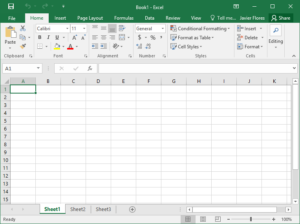6 Reasons Business Analytics Is Important for Small Businesses

In today’s modern and competitive landscape, everyone must navigate a fast-paced environment driven by advanced technological breakthroughs. Among the numerous significant influences that have propelled ventures toward growth, business analytics is a game-changer.
Analytical tools provide insights into consumers’ changing tastes and preferences. It can tap into your target audiences’ social media interactions, browsing history, and shopping patterns. That way, business owners can keep up with emerging trends, enabling them to reshape their business strategies. In addition, these insights can facilitate data-driven decision-making, ensuring everything is backed with stats.
Let us show you the ropes if you want to learn more about this. Here are six reasons why business analytics is essential for small businesses.
Offers Opportunities to Expand into New Markets
Where do you see your company in the next five years? Entrepreneurs typically plan to enter more significant markets and expand their product lines to reach wider audiences. But unfortunately, this is easier said than done. After all, stepping into new markets includes navigating numerous challenges like unfamiliar competitive landscapes and customer needs. Luckily, analytical tools are paving the way, enabling business owners to conquer all obstacles.
- Business analytics enable entrepreneurs to harness the power of data and get insights into new markets.
- Analytical tools provide a detailed analysis, from customer preferences to barriers to entry into the competition. You can identify untapped opportunities and develop effective strategies to succeed in a new market.
However, business analytics isn’t everyone’s cup of tea. It requires expertise and an in-depth understanding of data analytics.
What You Can Do
If you don’t know much about analytics and its technicalities, here’s what you can do.
- Enroll in online courses. Short courses and programs can also come in handy for improving your analytical knowledge.
- If you’re pursuing higher education, opt for a business analytics MBA online to equip yourself with crucial data analytics knowledge.
Assists with Risk Mitigation
As a small business owner, you must realize that running a company involves risks, varying from uncollected receivables to customer theft to legal liabilities. But the good news is you can leverage the power of business analytics to understand risks and take preventative measures.
Analytical tools can help you:
- Assess potential risks by evaluating historical data, trends, and internal processes
- Identify vulnerable areas
- Take necessary precautions to address vulnerable areas
For instance, a manufacturing company can use analytics to get data on workplace accidents and near misses. Businesses can use these insights to:
- Implement preventive measures to reduce hazards
- Predict how liabilities such as taxes will change over time, helping entrepreneurs develop risk management strategies beforehand.
Improves Customer Service
Trust us, business analytics and customer service go hand-in-hand. In fact, according to statistics, companies using business analytics are 23x more likely to attract customers.
Here’s how business analytics helps customer service.
- It enables businesses to better understand their customers by evaluating customer data like spending patterns, demographics, and preferences. As a result, such information helps predict customer demands, customize offerings, and deliver personalized experiences.
- It can foster customer segmentation by putting them in different categories like location, age, and other demographics. I
- It helps businesses target specific audiences with personalized marketing messages, offering customers an improved experience.
- It allows marketers to send tailored suggestions and recommendations to their customers based on their purchasing history.
- It helps predict customer behavior, making it easier to identify potential issues and take measures to solve them.
Optimizes Pricing Strategies
Do you know business analytics arms companies with tools that enable price optimization?
Here’s how business analytics helps enable price optimization.
- Analytical tools give insights into the market dynamics and its competitiveness. It helps determine what competitors are up to, what prices they charge, and their upcoming strategies. With this information, you can analyze the price elasticity and check how sensitive the demand is to changes in price.
- Business analytics provides information about inventory levels, customer behavior, and demand, allowing you to adjust prices accordingly.
- It also offers businesses insights into the profitability of various pricing strategies, helping you make more intelligent choices that maximize your returns.
Hence, you can conduct pricing experiments to evaluate the influence of multiple pricing strategies. You can also keep adjusting your price model as per data provided by analytical tools.
Streamlines Operations
Trust us; business analytics can play a significant role in streamlining business operations.
Streamlining business tasks can help you improve efficiency and reduce costs. It allows you to adapt instantly to changing market demands and grab growth opportunities, helping you advance your venture.
Not sure how business analytics streamline operations? Some of the ways include:
- It allows you to evaluate current processes, spot bottlenecks, and discover weak areas to improve, helping you eliminate mundane tasks and streamline workflows.
- You can monitor quality control measures, recognize patterns, and address potential challenges. In turn, you reduce product defects and enhance customer satisfaction.
- Businesses can evaluate resource utilization, like equipment usage and workforce allocation. Identifying underused or overused resources can help them optimize their distribution, improving effectiveness and efficiency.
- Business analytics allows predictive maintenance related to maintenance records and equipment performance. You can identify possible machinery failures beforehand, reducing downtime.
Measures Performance
Are you looking for an effective way to measure and assess business performance? If so, business analytics can provide valuable insights for performance evaluation!
- It enables entrepreneurs to determine and track key performance indicators (KPIs) that cater to their objectives. You can collect relevant data and evaluate your performance with these KPIs.
- It visualizes data through charts and graphs, allowing you to spot trends and monitor performance measures. It also improves understandability as reading information through visual data is easy for all team members.
- Analytical tools can predict future performance based on industry trends and historical data.
Final Thoughts
Are you wondering about how to drive your venture towards growth and success? If yes, leverage business analytics tools. It provides valuable industry insights, making it easier to adapt to new trends. Besides that, business analytics can help you streamline business processes and improve your business’s overall efficiency. It also plays a significant role in improving customer service and satisfaction, making it easier to take your business to the next level!






